2023: A Year in Review
Building NUS’ Libraries of the Future – Today

A quick look-back, before we look
foreword
by Associate Professor Natalie Pang
University Librarian
If I had to sum up our last 12 months in a single phrase, it'd be, "creating the Libraries of the future, today". So much of our work has gone into rethinking the academic library in today’s educational landscape, establishing new capacities and capabilities that help bring our Libraries, library staff and our collections one step closer to becoming the Libraries of the future.
NUS Libraries truly grew and developed in every possible way. We opened a new Medicine+Science Library, formed strategic partnerships, and bagged international awards. Even our waistlines were not spared, thanks to the number of lunch meetings!
But perhaps the most striking area of growth came in the form of expanding our vision of what it means to be the Libraries of the future. We took time out to reflect on where we came from, the changes and transformation that we've undergone, and where we see ourselves in the years to come.
These discussions about our future are a work in progress, but what is clear is that Libraries continue to be at the heart of our academic communities. While technology advances and teaching pedagogies evolve with time, what remains constant is the human desire to learn, to improve, and to leave a lasting legacy.
As we look back on what we have achieved in the past year, we also want to take a moment to thank the many partners and collaborators who have journeyed with us; in no particular order: Futures Office, NUSIT, NUS Museum, CELC, CPO, ODPRT, and Agility Office, just to name a few.
Our work is not done, and we look forward to continuing the work of building the Libraries of the future - Libraries that sit at the heart of our University, where communities come to experience learning, and go forth to build a better world.
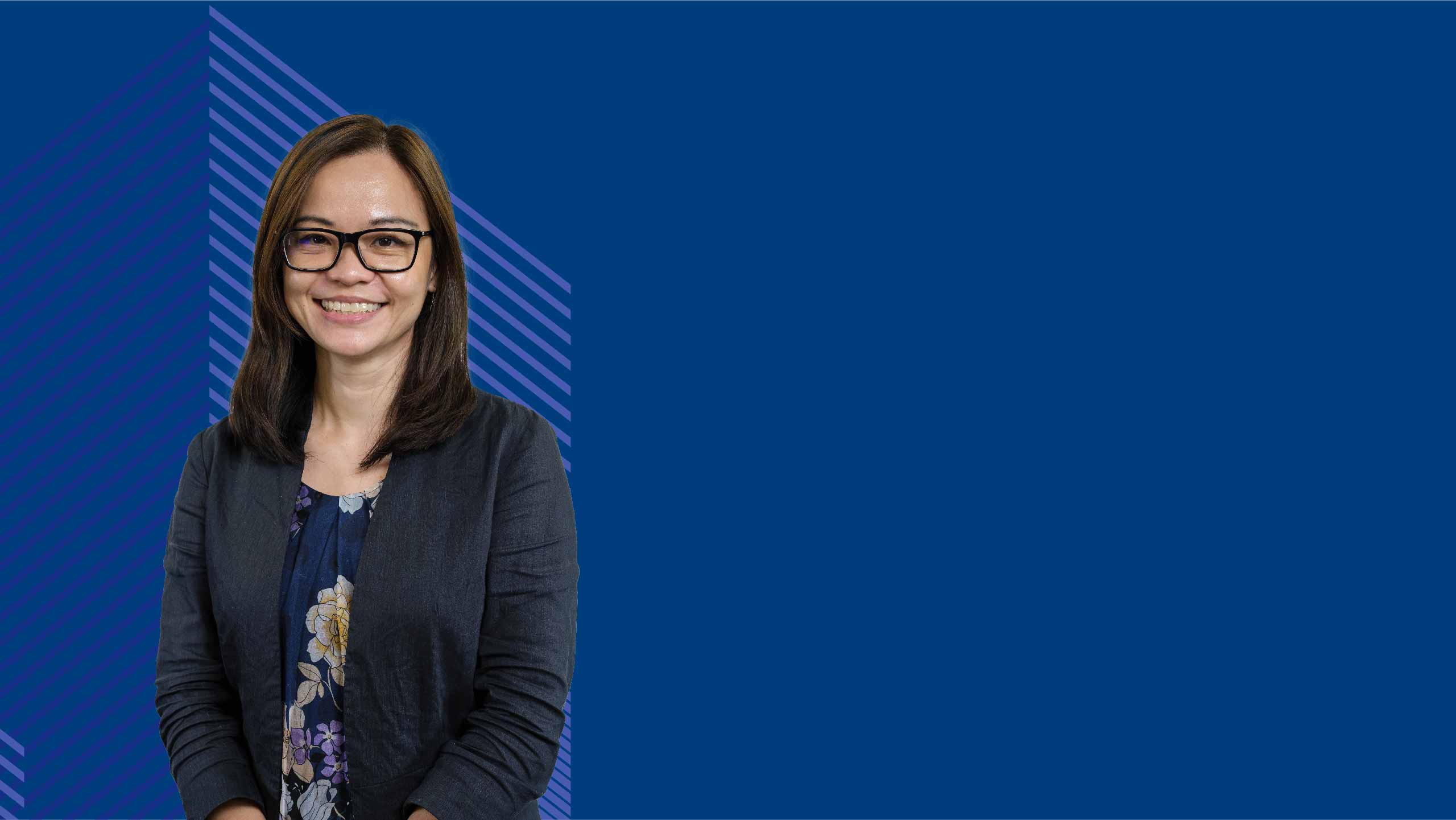
Expanding Our Boundaries
Opening the New Medicine+Science Library
This year, NUS Libraries officially launched the combined Medicine+Science Library (MSL) in August, opening the doors to new possibilities and innovations in collaboration and learning.
The new 1,200-seat library supports a wide range of learning activities, from providing individual study pods for overnight revision, to user-customisable collaborative spaces, and technology-enabled facilities that offer new ways to learn. There’s even casual food and beverage spaces where users can enjoy a quick pick-me-up – a far cry from the days when food and beverage was strictly verboten in libraries!
In a few short months of operations, we’ve already seen the MSL become a bustling hub of student activity. But more than just offering fancy tech capabilities and a quiet place to read, our vision is for MSL to become the focal point of the medicine and science communities on NUS. And we’re not the only ones with the same thought!
“Academic libraries are at the heart of a university community… a place for research and discovery, a place for quiet introspection and deep thinking, and a place for hard work,” said NUS President Professor Tan Eng Chye, who officially opened the MSL on 1 Aug 2023.
Professor Tan, we couldn’t have said it better ourselves. It is our hope that our libraries will be where inquisitive minds gather, ideas converge and flourish, and from where our students go forth to make a real difference in the world beyond.
Exploring the World Beyond
Christmas came early for our Tech Central team, who bagged a Bronze award at the prestigious QS Reimagine Education Awards 2023, held in December. Regarded as the “Oscars” of Education, the award commends innovative approaches to enhancing student learning outcomes and employability. In collaboration with Gretchen Coffman, Senior Lecturer at NUS Department of Geography, we showcased the transformative power of immersive experiences for learning.
“I am so proud of our team for their tireless work on this project, and collaborating so effectively to harness this new educational technology,” said Dr Coffman. “This just makes me want to keep making more amazing tropical ecosystems films and inspire more people to care about conservation!”
Cluster Head for the DSI team, Dr Magdeline Ng agrees, “This is a great validation of NUS Libraries’ role in catalysing educational innovations. We aspire to transform the role of the library to be more than just a repository for books and information, and really serve as a focal point for interdisciplinary learning and dialogue.”
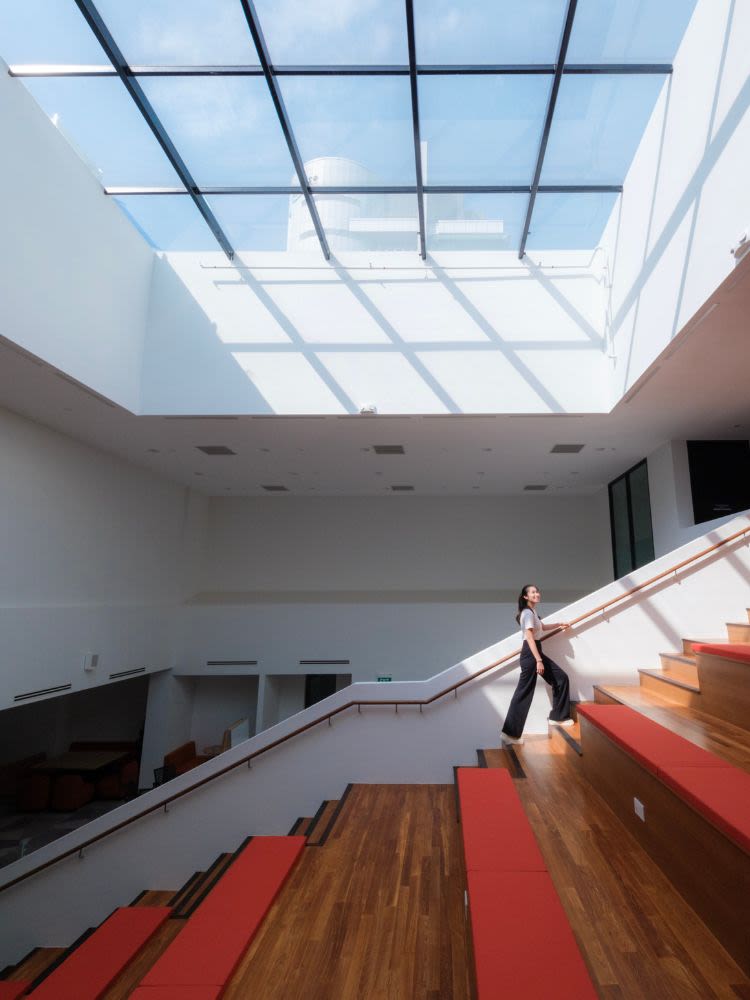
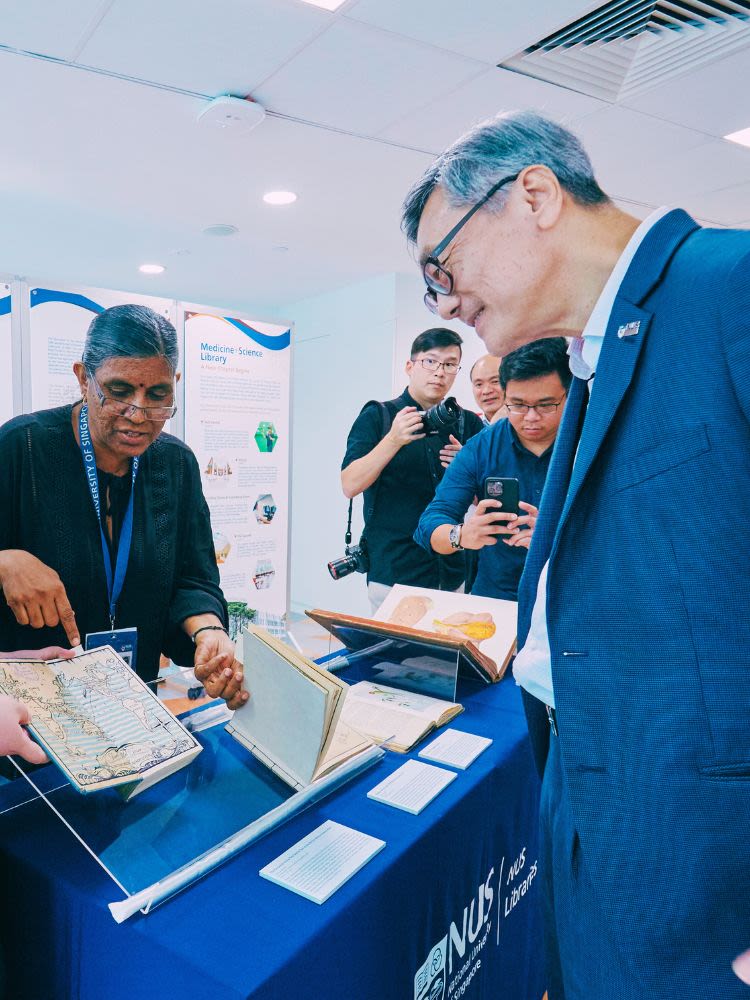
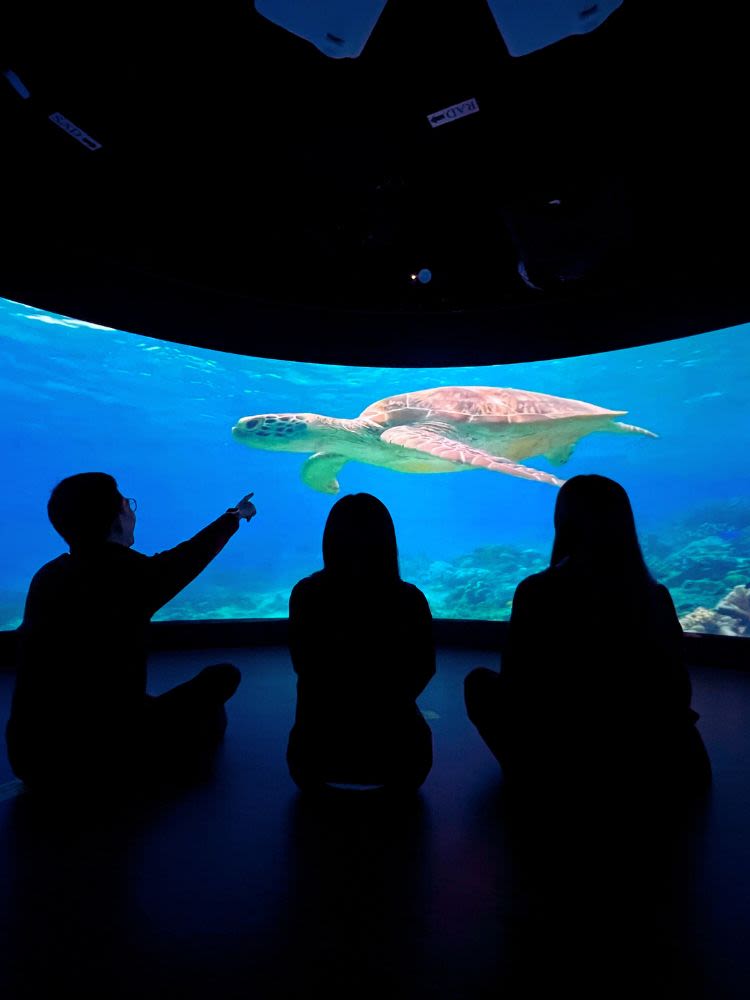
Preserving & Providing Access to Our Heritage
We continued our efforts to provide greater access to our collections, expanding and enhancing NUS Libraries’ offerings in the physical and digital spaces while further diversifying the breadth and depth of our collections.
Discovering Singapore’s history through private papers
Our collections team continued growing our collection of private papers of significance in Singapore and Southeast Asian history. Most notably, the team were privileged to be entrusted with a second tranche of personal papers and memorabilia from the late actor Bai Yan (白言), as well as the original centuries-old manuscript of Daeng Paduppa, a Bugis prince.
The Early Days of Singapore’s Getai in the Limelight
The family of the late actor Bai Yan's graciously donated a collection of his private papers and personal memorabilia, comprising items such as books, manuscripts, journals, handbills, newspaper clippings, and audio-visual media. This cherished collection provides a window into the multifaceted career of "the man with a hundred talents", and illuminates his close relationships with other esteemed pioneering local artists like Wang Sha (王沙) and Ye Feng (野峰). The collection also sheds light on the development of vernacular performing arts in Singapore, such as getai (歌台), which has been shortlisted for inscription in UNESCO’s intangible cultural heritage list. In our commitment to preserving and enhancing public access to our local heritage, we are currently digitising the entire collection. A portion of the cherished archive is now publicly accessible through our online archive Digital Gems.
Understanding Economic and Cultural Links Between the Bugis and Singapore
Through a collaborative initiative with Universitas Muslim Indonesia (UMI), the original manuscript of Daeng Paduppa, a Bugis prince, is set to undergo preservation, digitization, and translation into both Bahasa Indonesia and English. The centuries-old manuscript will shed light on the crucial role played by the early Bugis maritime traders who significantly contributed to Singapore's evolution as a key regional trading hub, providing valuable insights into the economic and cultural exchanges between the Bugis community and Singapore.
Expanding access to our rare books
Many visitors have expressed interest in visiting the Central Library BookBridge, an award-winning structure that houses a selection of our rare books collection. With titles dating as far back as the 15th century, these delicate books require careful handling to protect them from wear and tear, in order to preserve them for as long as possible.
Learning from our experiences in levelling-up our tech capabilities amidst the COVID-19 pandemic, our collections team has created an immersive virtual tour that offers visitors around the world the opportunity to explore the BookBridge! With just a click, everyone can now get a closer look at these rarities, and even peruse the contents of notable books, making a virtual visit to the BookBridge a possibility anytime, anywhere.
Revitalising Singapore’s historical maps
Since its inception in 2018, Historical Maps of Singapore (or libmaps), has been one of our most popular Digital Scholarship projects, reaching up to 17,000 unique users each year ranging from researchers, to civil servants and journalists. A joint project between NUS Libraries and NUS Department of Geography, with the support of the Ministry of Defence and Singapore Land Authority, the site hosts a set of 31 georeferenced maps dating from the 19th to 21st Century.
Prompted by the discontinuation of support for the original web infrastructure, our Digital Scholarship team undertook the task of reconstructing libmaps from the ground up. The revamped libmaps now offers users an enhanced interface, featuring quicker display times and improved image quality for a more satisfying user experience.
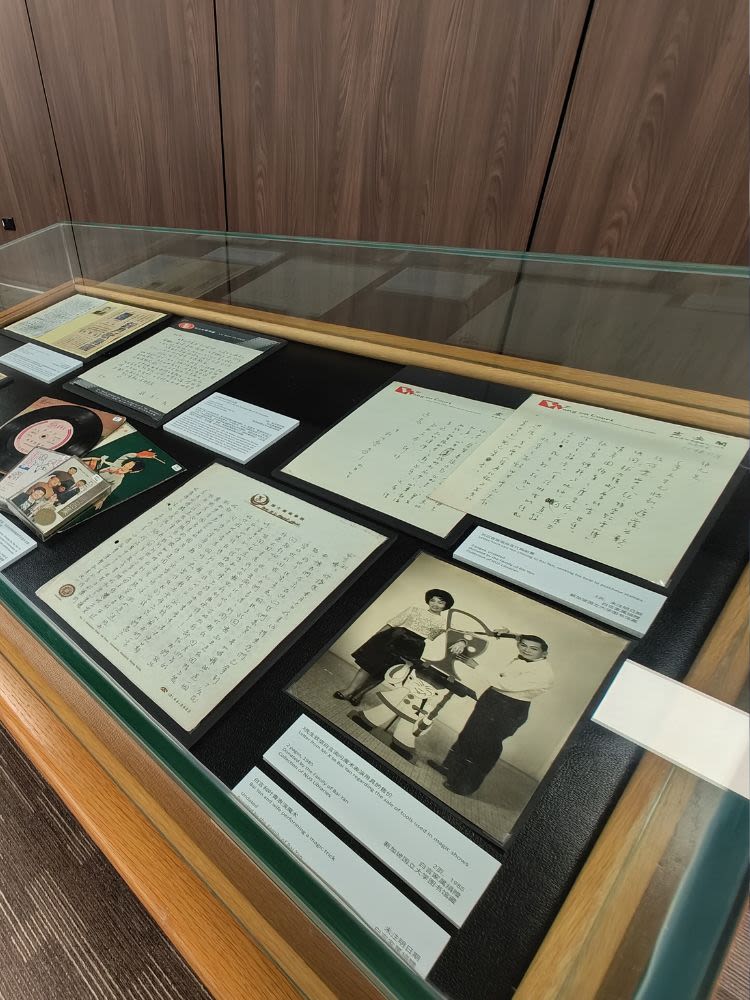
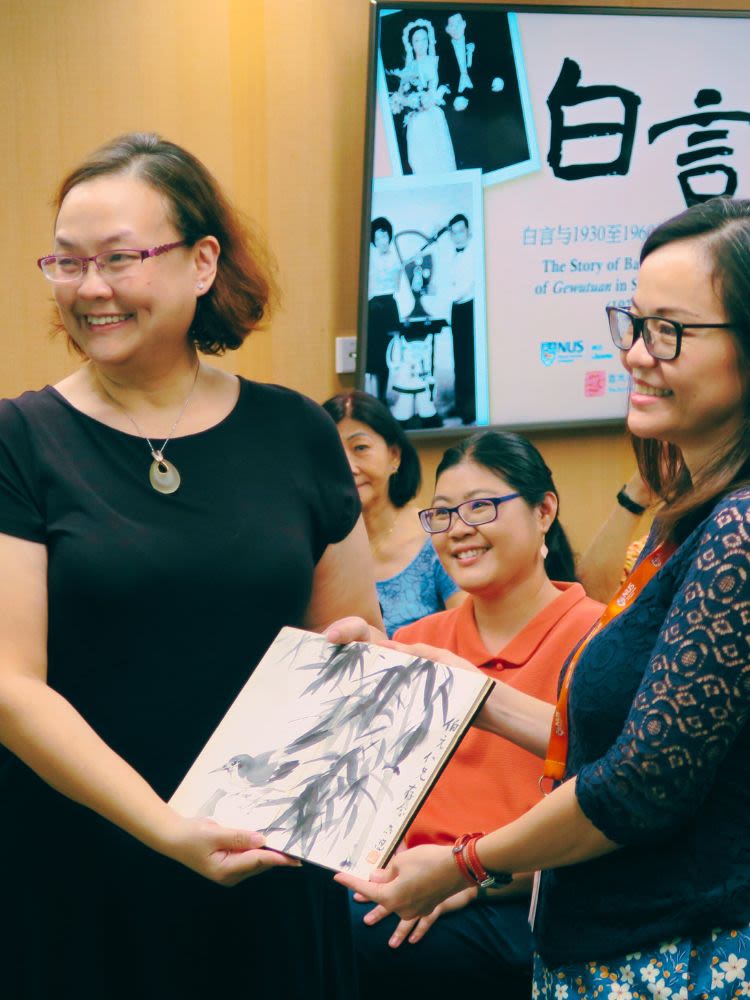
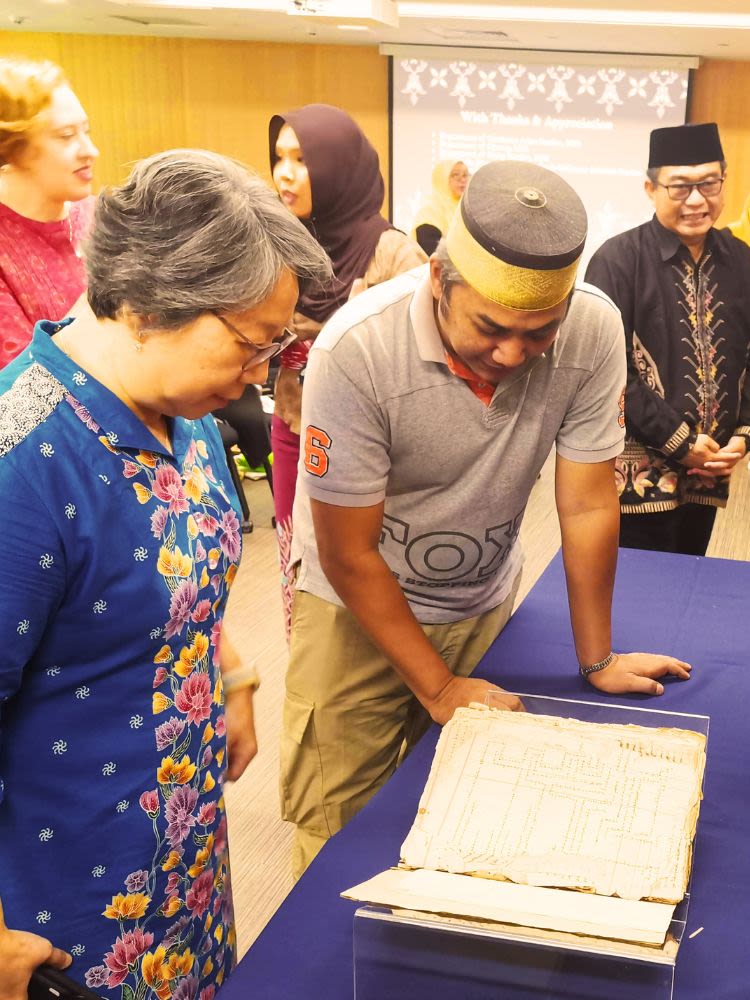
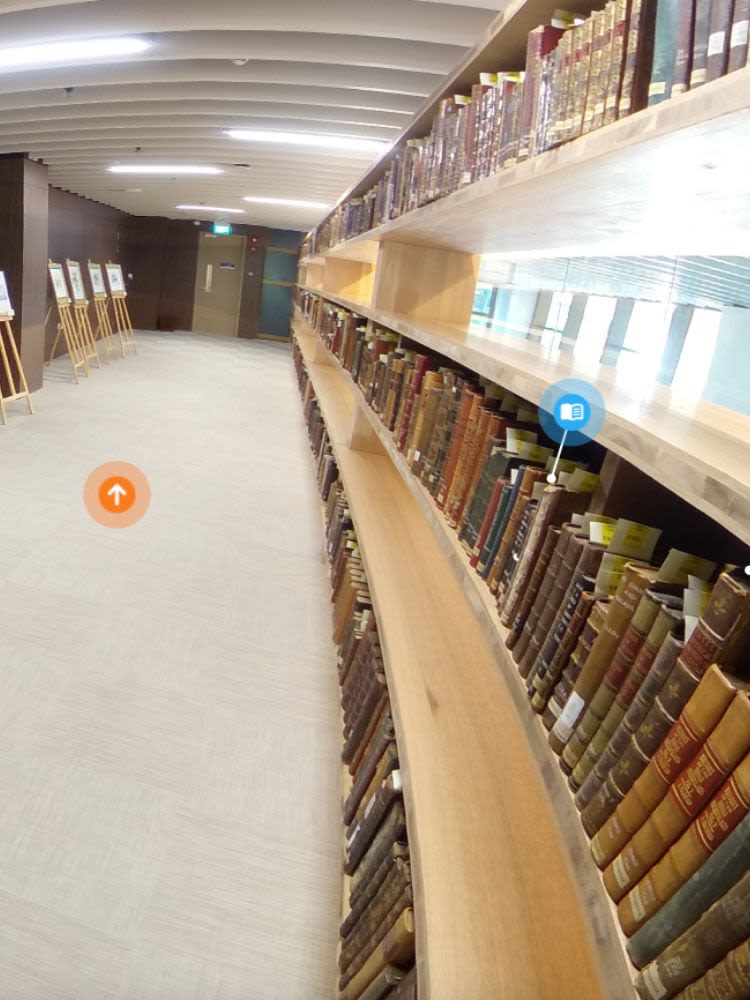
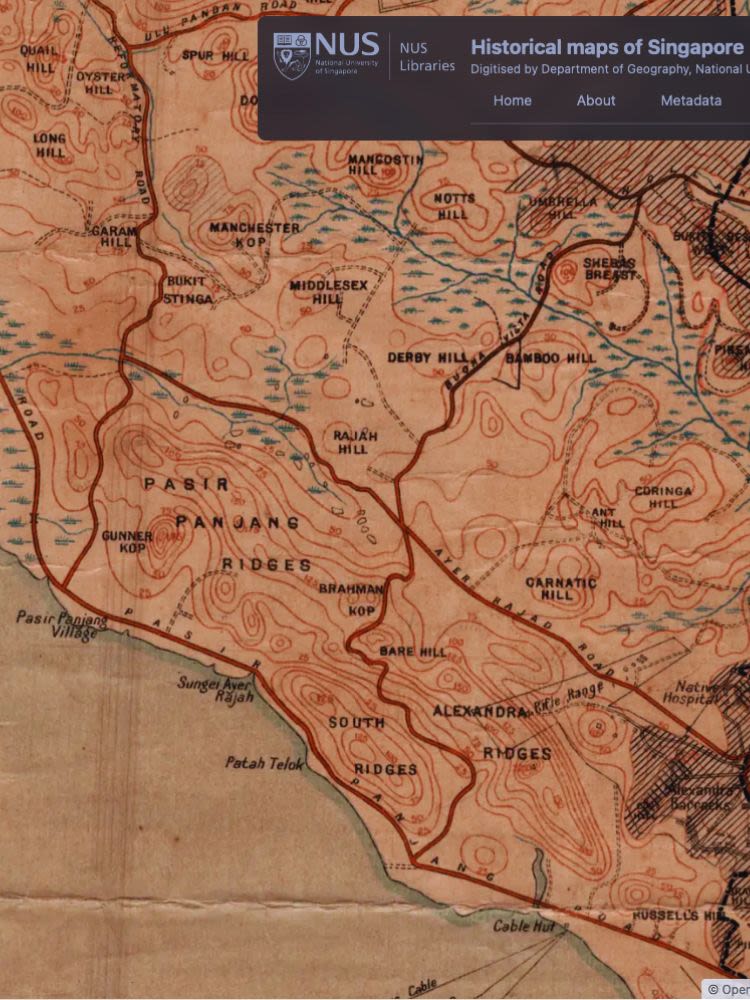
Sharing Expertise with Our Communities
Empowering students with immersive tech skills
As modern education ushers in a new era of interactive learning, libraries and librarians play a key role in facilitating students’ journey toward technological empowerment. By making immersive spaces and tech tools more accessible to everyone, we hope to equip students with digital skills to navigate the dynamic landscape. With this goal in mind, we provide state-of-the-art teaching and learning facilities such as the 360imx and VR/AR equipment. We also run regular workshops on immersive technology to introduce a variety of tech tools to the community. This year, we brought the initiative further by collaborating with NUS Communications and New Media Department to teach students how to use immersive tools such as 360imx, 3D photogrammetry, virtual reality, and augmented reality to bring their presentations to life.
Rediscovering NUS' Computing History
We partnered the NUS School of Computing in a labour of love to launch the NUS Computing Gallery. Tasked with conceptualising and developing the Computing Gallery, our Heritage Working Group (under the Collections Management & Preservation Cluster) started researching the Singapore-Malaysia Collection. The renowned collection proved its worth once again, as we discovered some very exciting material, including surveys conducted by the National Computer Board in 1982, prospectuses by the Department of Information Systems and Computer Sciences (DISCS), and even past exam papers. We owe a debt of gratitude to the curators and librarians who diligently helped to build this collection over the decades.
We went beyond just conducting research, proposing the layout for the gallery, and drafting the narratives for the various exhibition areas. The team stepped up to take on additional tasks, such as designing graphics for the gallery, sourcing for artefact contributors to lend context to the narratives. Looking at the completed gallery gives us a great sense of joy and satisfaction, as we see how all the contributions we have made come together - like blocks of code creating a computer program!
Advancing NUS’ research excellence through library partnerships
ODPRT (ARCIO) in collaboration with Office of Data & Intelligence and NUS Libraries, developed the RDMP Guidelines on Retention of Final Research Data for Selected NUS Studies. The guidelines stipulate how final research data should be archived for NUS-funded research above 250K. It also puts a mandate for NUS researchers to deposit their final research data into ScholarBank, the NUS institutional repository managed by NUS Libraries. This not only helps to protect our research data, it also increases visibility of NUS research.
As part of NUS’ ongoing efforts to better support the archival of publications and research datasets, we also worked with NUS IT to procure an enhanced institution repository system, developing the scope and justifications for clearance at the NUS level.
Sharing resources and achieving cost savings through the Singapore Alliance of University Libraries (SAUL)
Under our leadership of the Singapore Alliance of University Libraries (SAUL), which comprises the seven autonomous universities in Singapore, the Alliance has evolved into a collaborative initiative comprising six task forces. Each task force - while having different areas of focus - shares a common vision to serve as partners and leaders in enriching education and the research ecosystem through knowledge discovery, creation and sharing.
NUS Libraries chairs the SAULeres (pronounced "solaris") taskforce, leading partnerships with major publishers to negotiate consortia subscription deals for electronic resources, which includes multiyear contracts.
The SAULeres task force has also championed transformative read-and-publish agreements that shift the conventional academic publishing model to an open access paradigm. This strategic partnership has not only resulted in substantial cost savings, but it has also ensured uniform access to electronic journals, and even databases for some SAUL member institutions.
Offering writing assistance to a larger community
The NUS Libraries Writers’ Centre, in collaboration with the Centre for English Language Communication, completed its first full calendar year of operation as the Writing and Communication Hub this December. All in, the Writers’ Centre was warmly received by the NUS community, delivering over 3,000 writing consultations to 785 individuals. Additionally, the team conducted 15 writing and communications workshops, organized 11 creative writing events featuring local and international literary figures, and initiated a successful honours thesis writing boot camp.
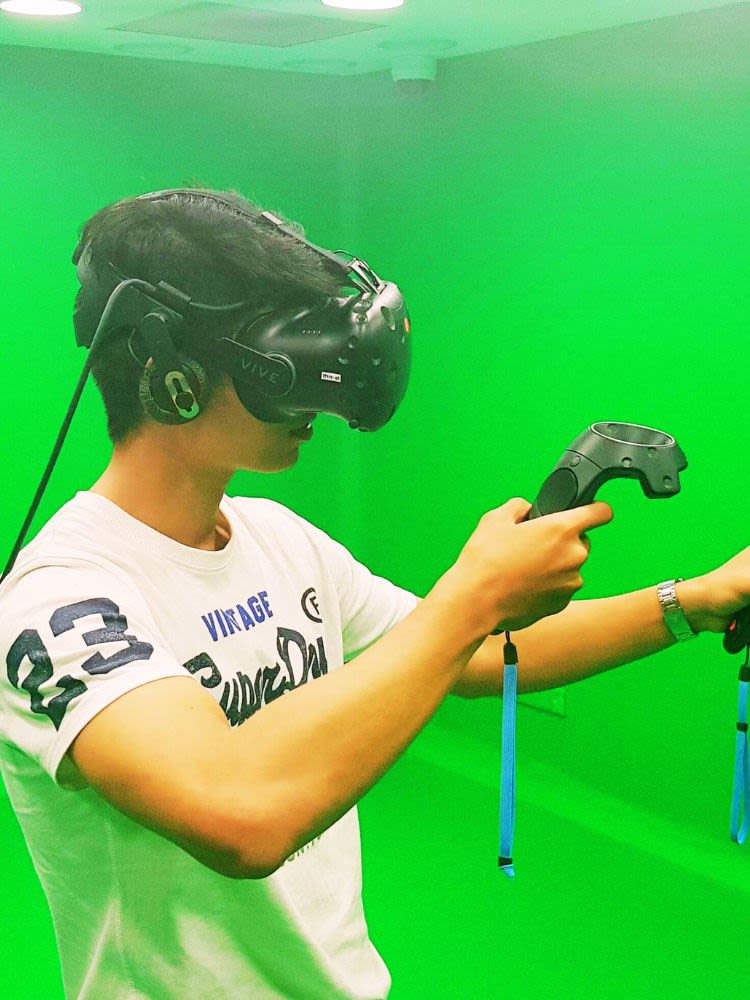
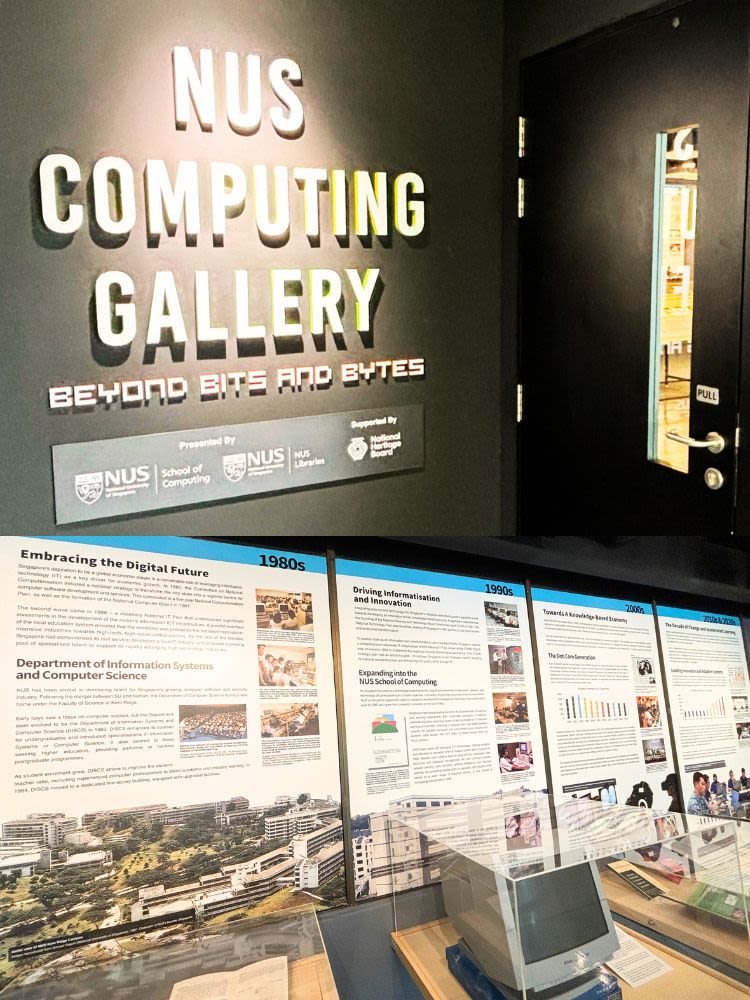
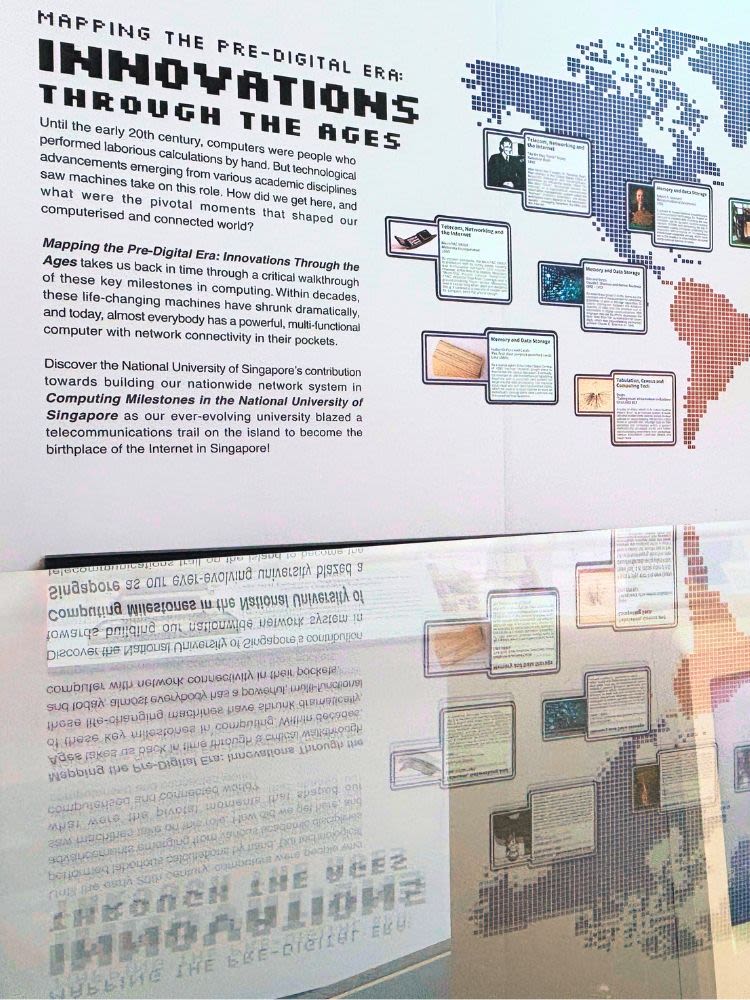
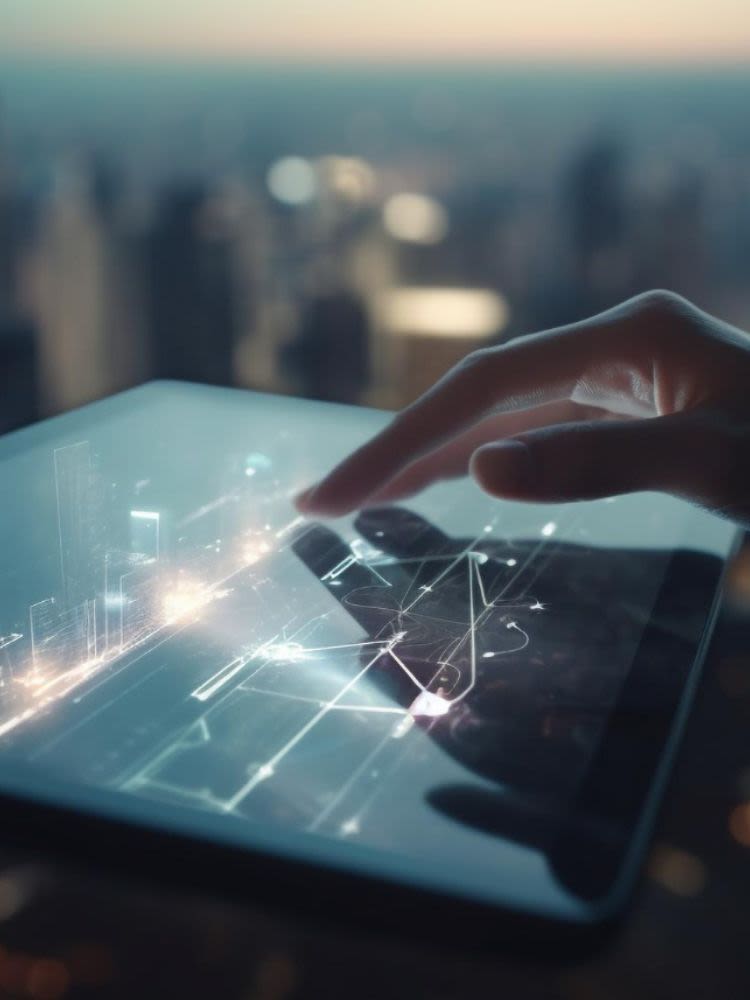
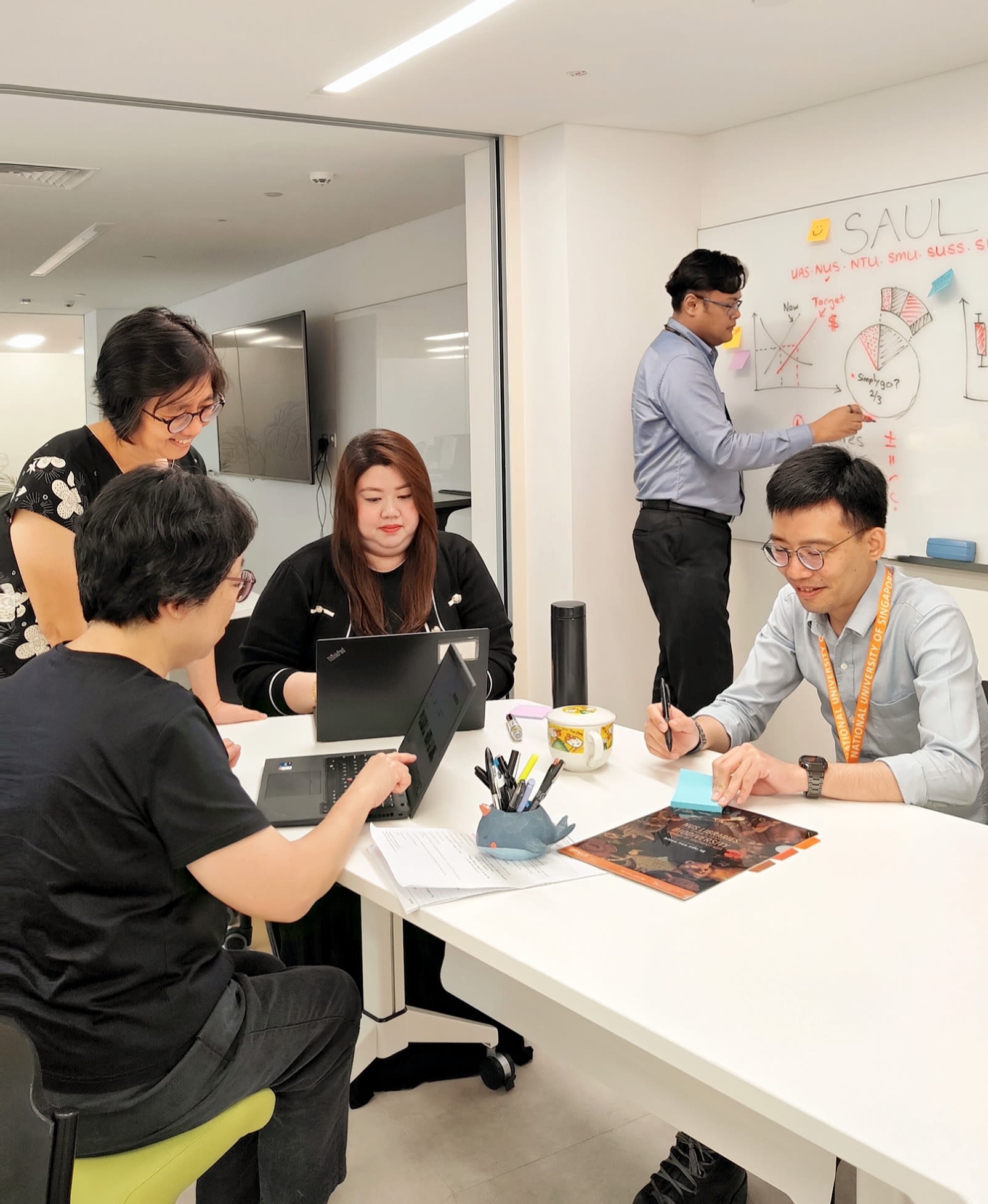
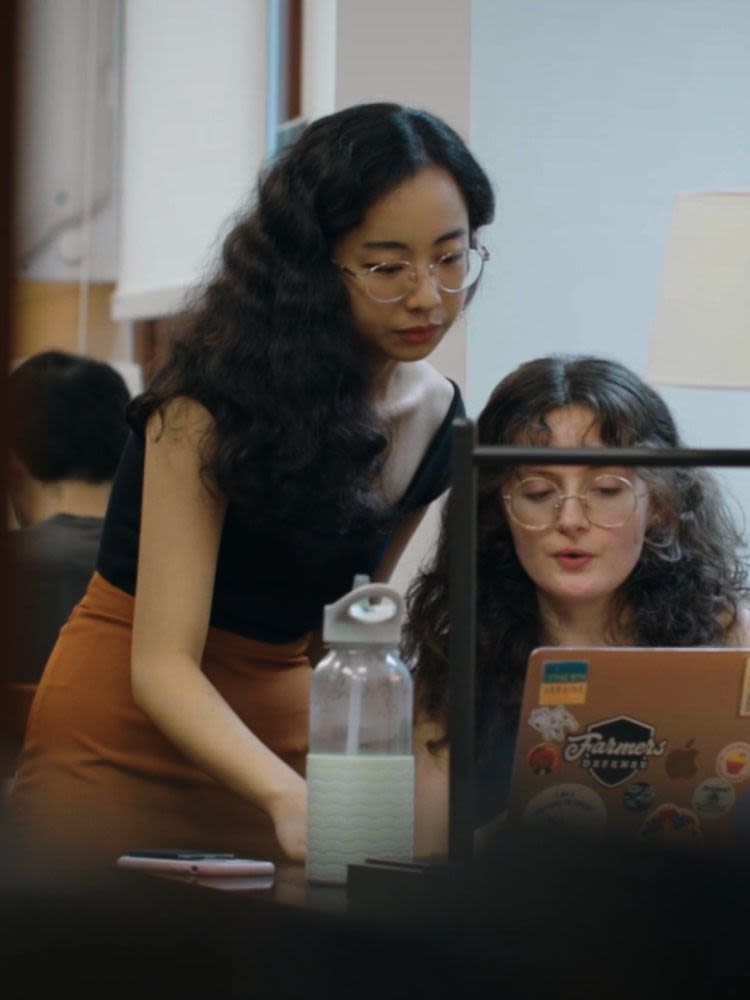
NUS Libraries: in Numbers
Knowledge Sharing

22,747
Total Attendees

311
Instructional Sessions

4,006
Consultations

34
Outreach Sessions
Visitorship

795,217
In-person Visits
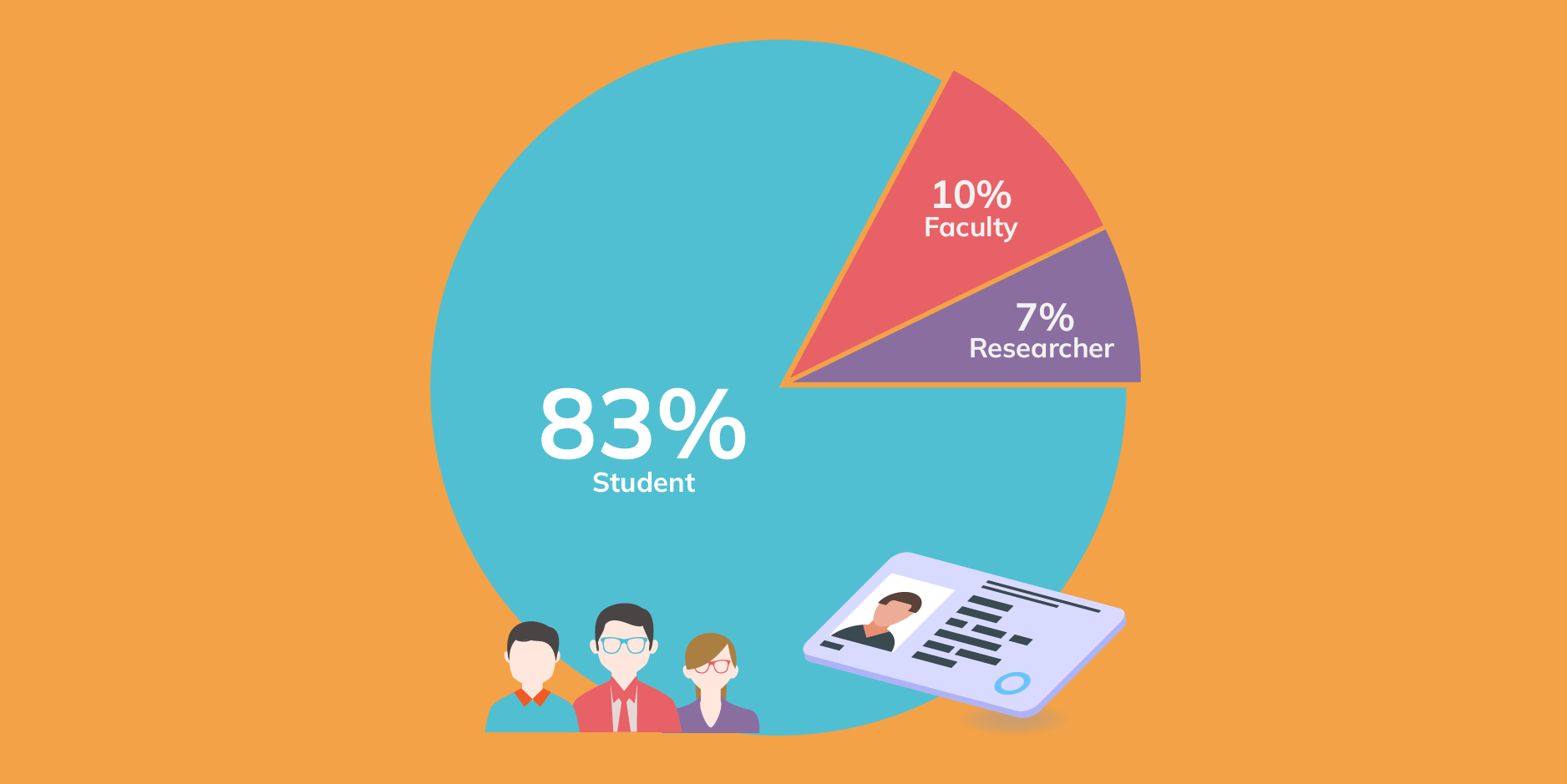
75,724
Library Members
Collections
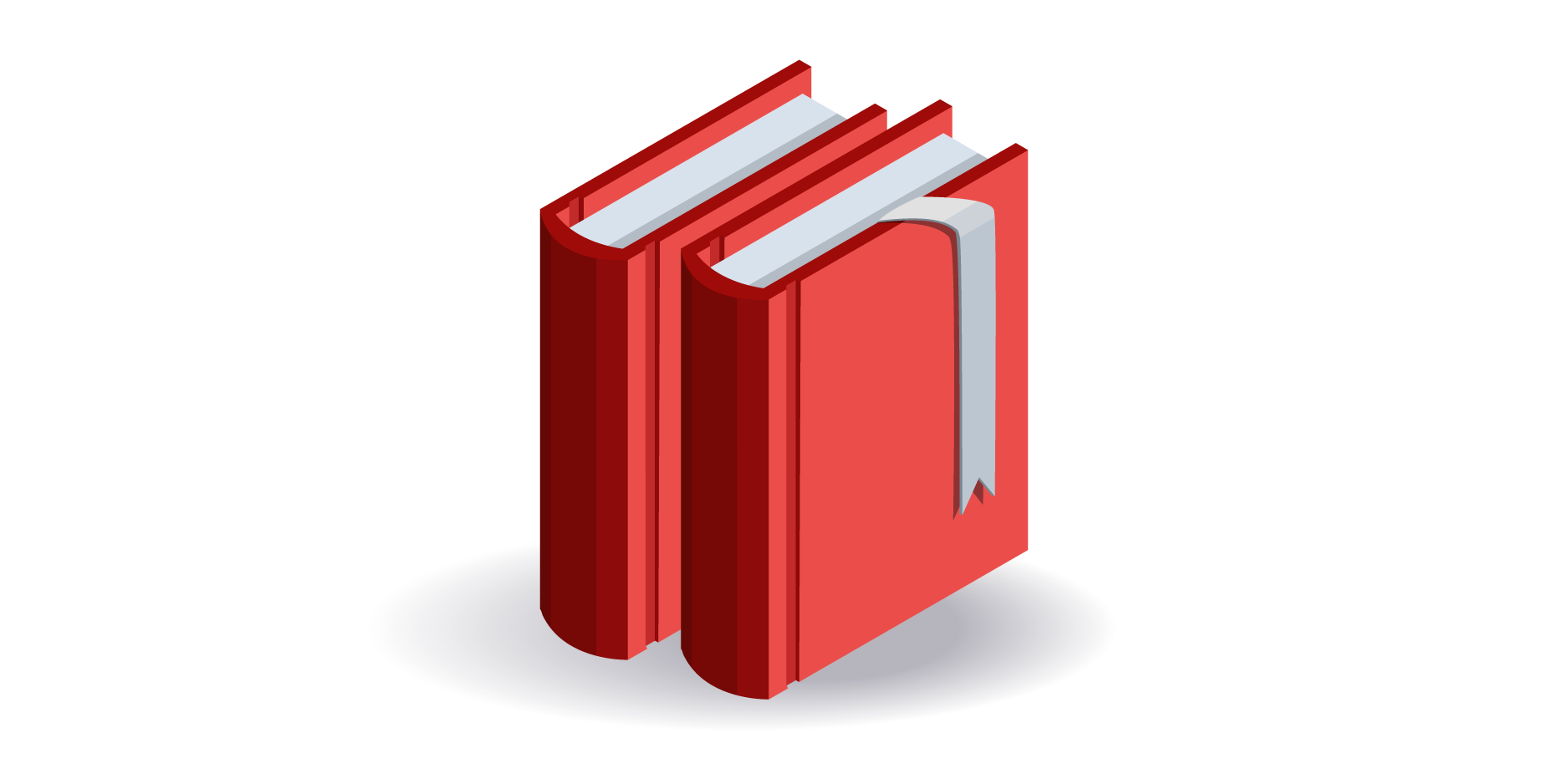
3,058,563
Print Books & Journals

95,746
e-Journals / Newspaper Subscriptions
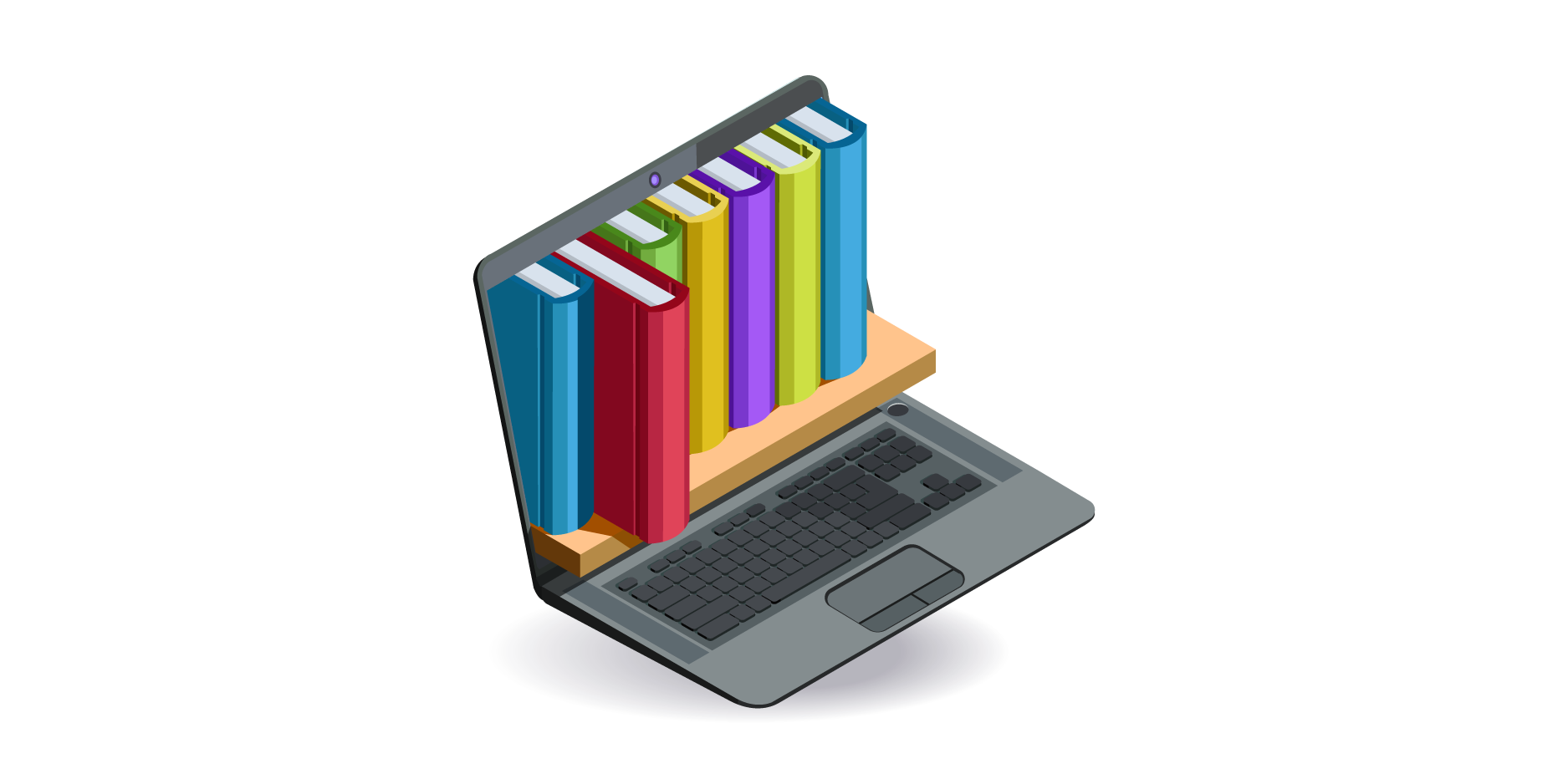
1,347,378
e-Books

956
Academic Database Subscriptions
Usage
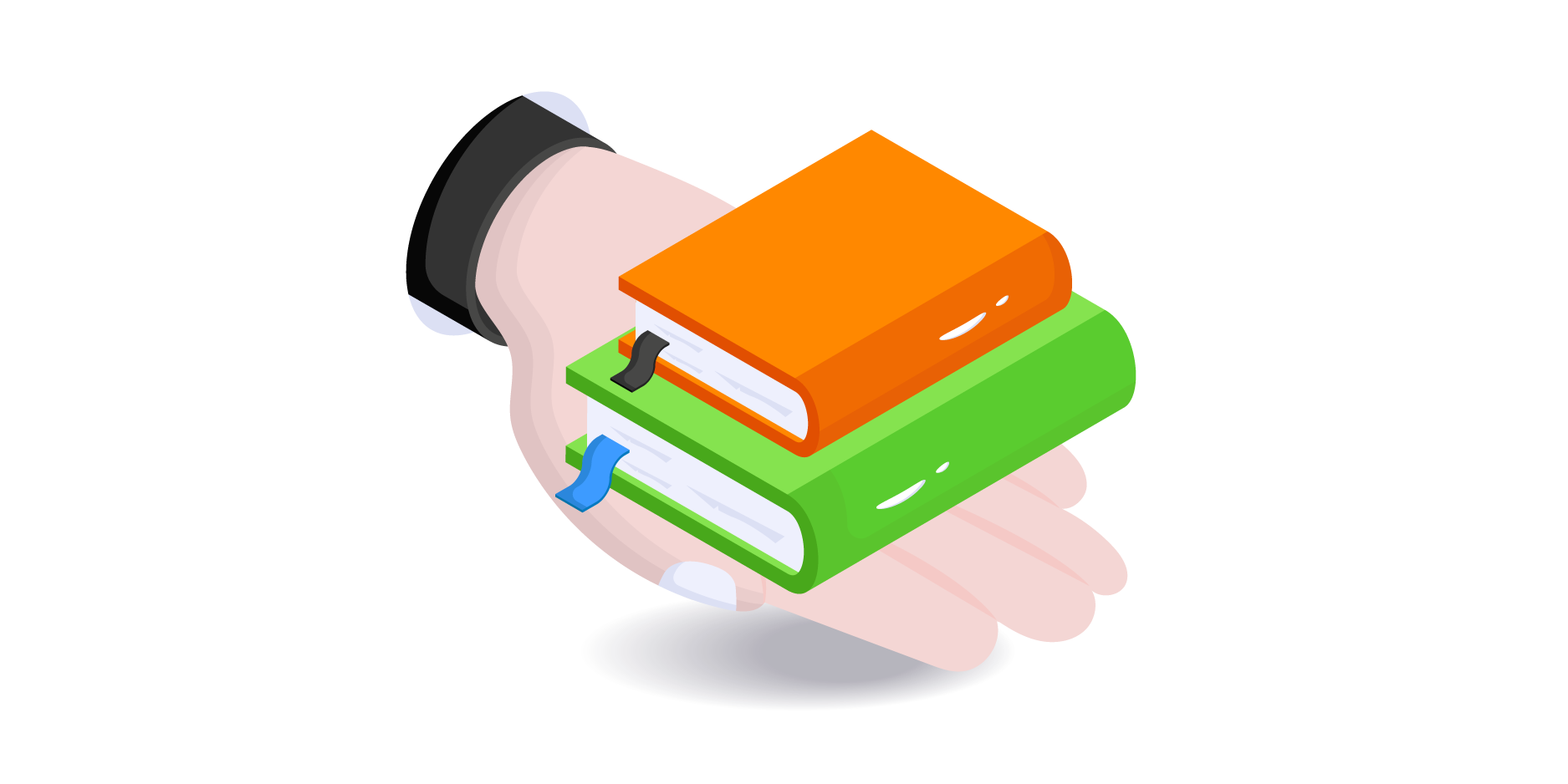
56,597
Loans for Print Resources
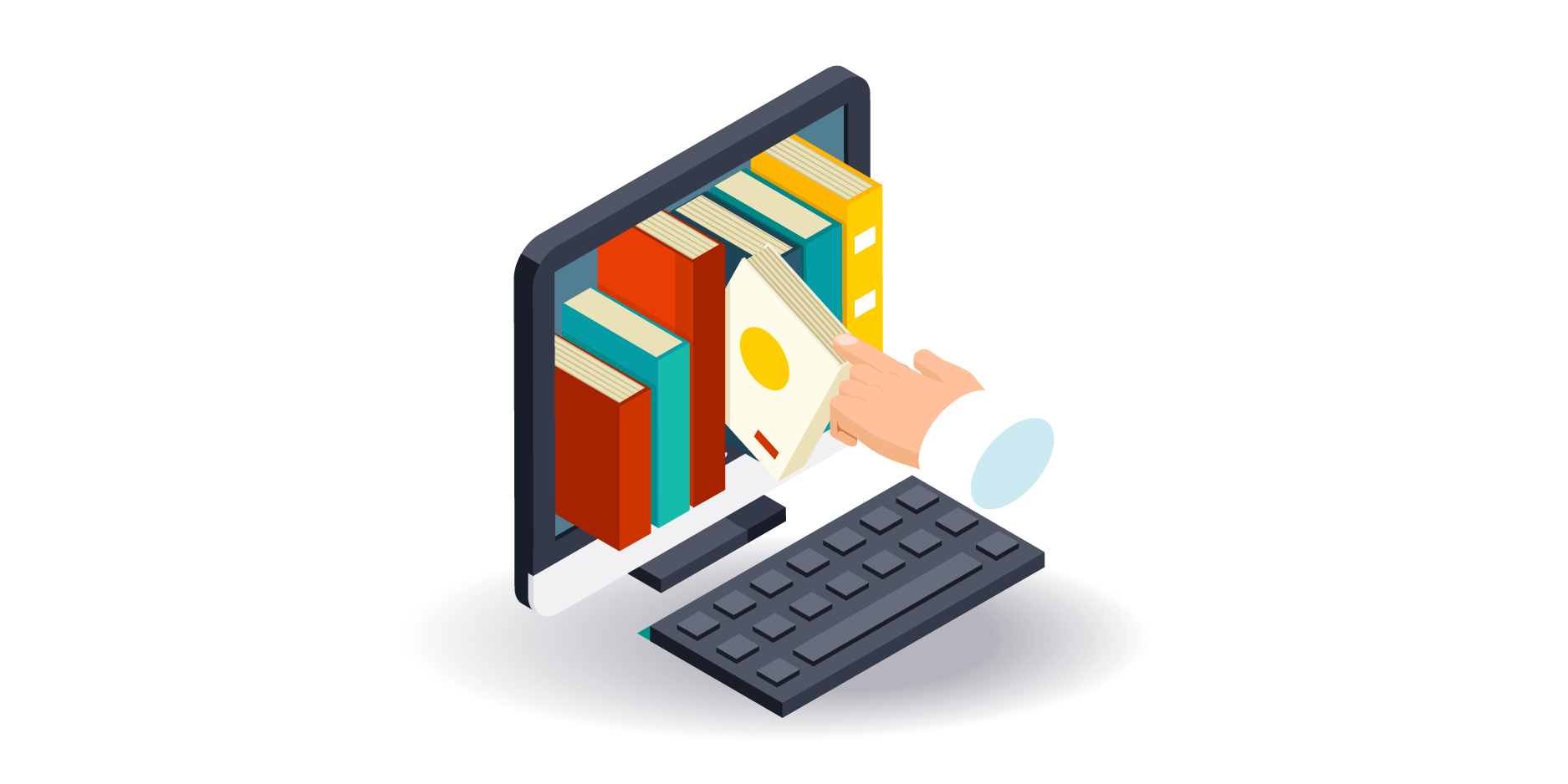
7,025,629
Total e-Resource Usage
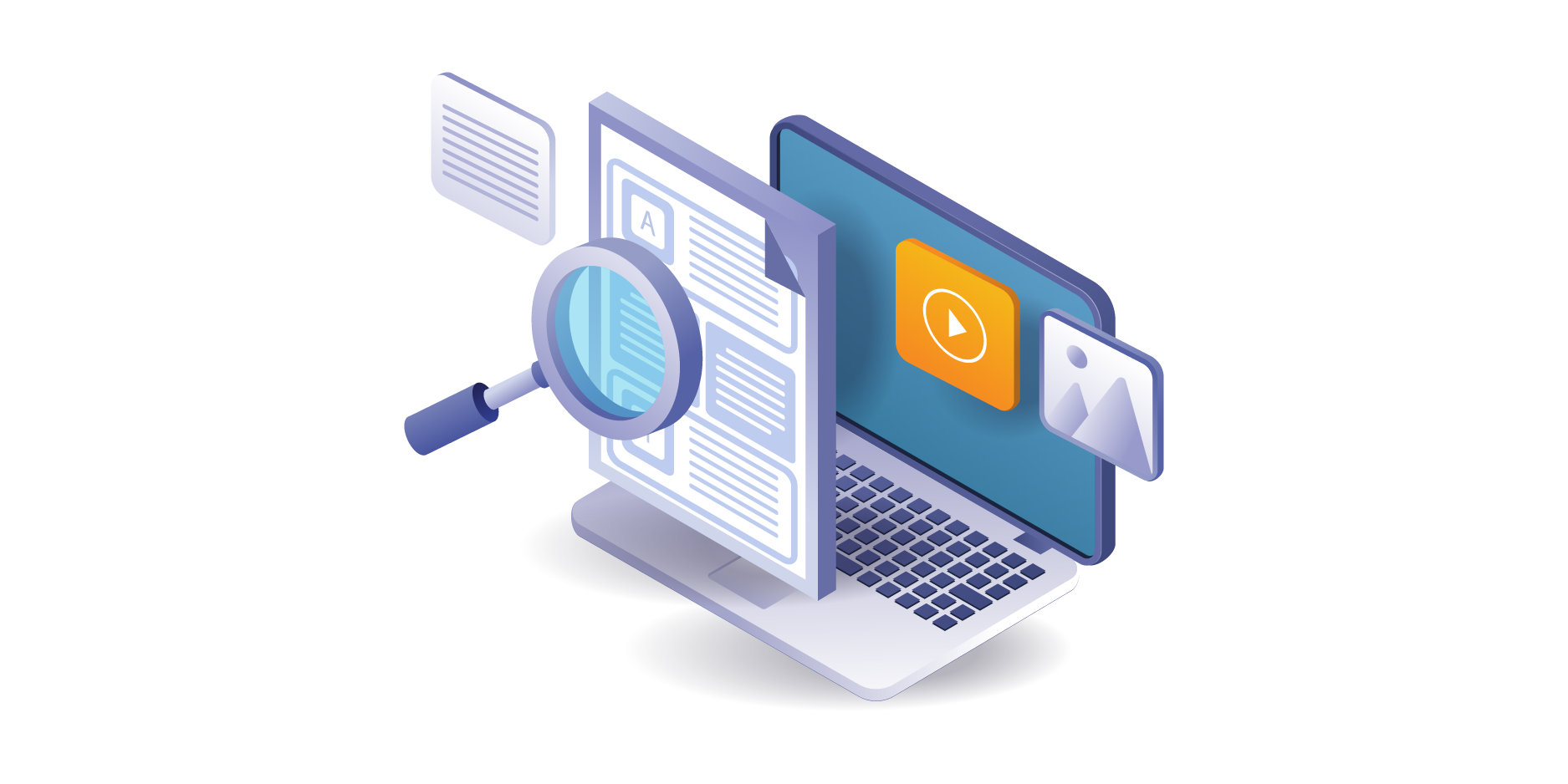
1,439,266
Searches for e-Resources
Notable Events
Symposiums
Undergraduate Research Fellowship Symposium
July
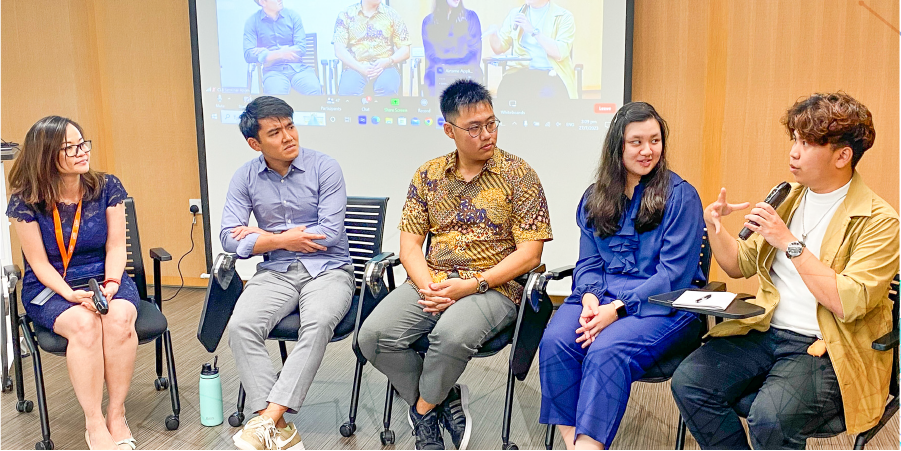
Launched in May 2022, the Undergraduate Research Library Fellowship offered opportunities for students to pursue research with a Southeast Asia focus, involving source materials in our libraries’ collections. The symposium was a celebration and showcase of the research projects completed by our pioneer batch of fellows Damien Kee, Shaun Lee, Rica Teo, Shawn Wongosari and Yap Yu Liang.
Researcher Unbound Symposium
September
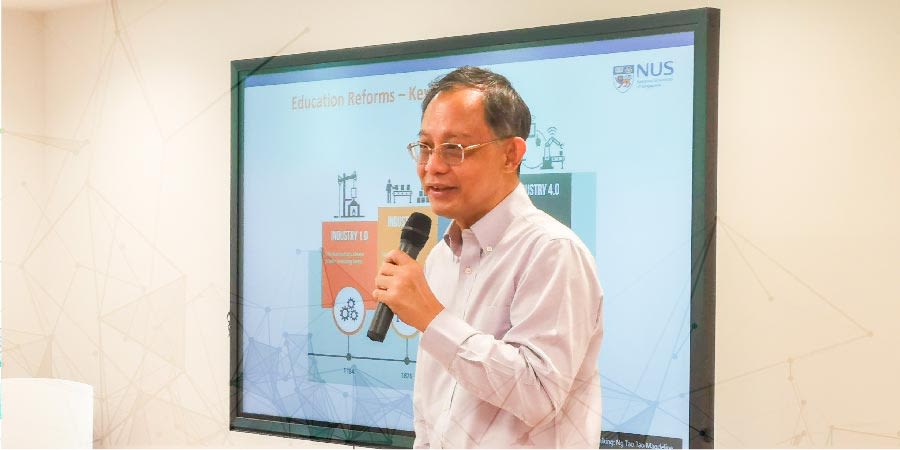
This 2-day event brought together some of the brightest minds to share their stories and experiences in Creating Impact Through Partnerships in Education, Research, Innovation & Entrepreneurship. The symposium was organised in collaboration with NUS Enterprise.
Workshops
Researcher Unbound
Throughout the Year
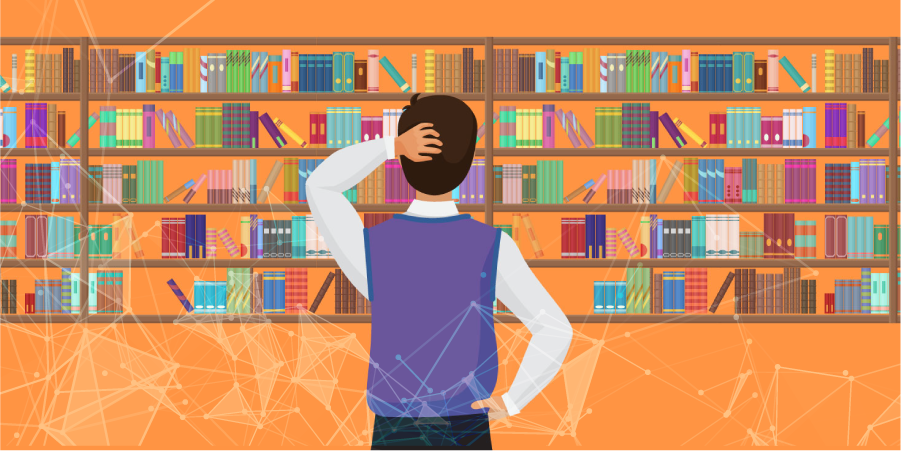
We organised 42 workshops under our flagship Researcher Unbound programme targeted at helping early career researchers grow their research capabilities.
We ran 22 workshops under the RU-Mini series, a spin-off of Researcher Unbound that offers bite-size sessions for quick takeaways.
Jumpstart Mini
May-June & November-December
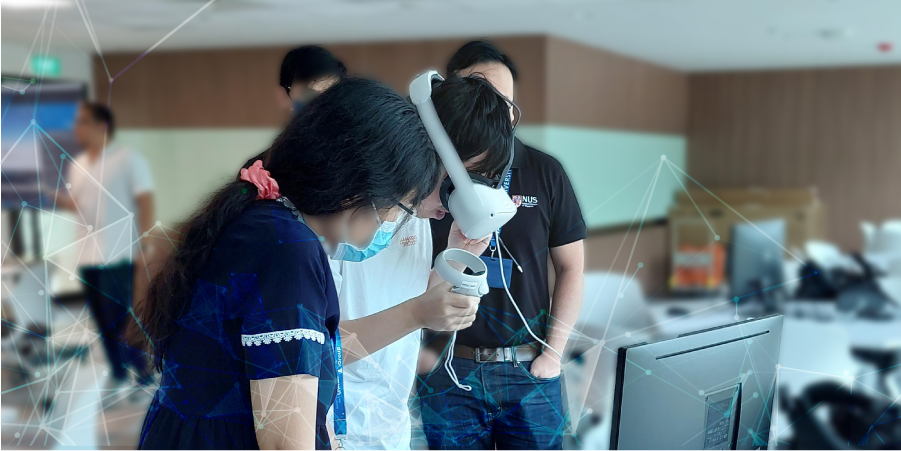
We conducted 13 Jumpstart Mini workshops where we offer introductory skills on using immersive tech tools.
534 Digital Badges Awarded to date.
Talks
New Work in Chinese Buddhist Studies
April
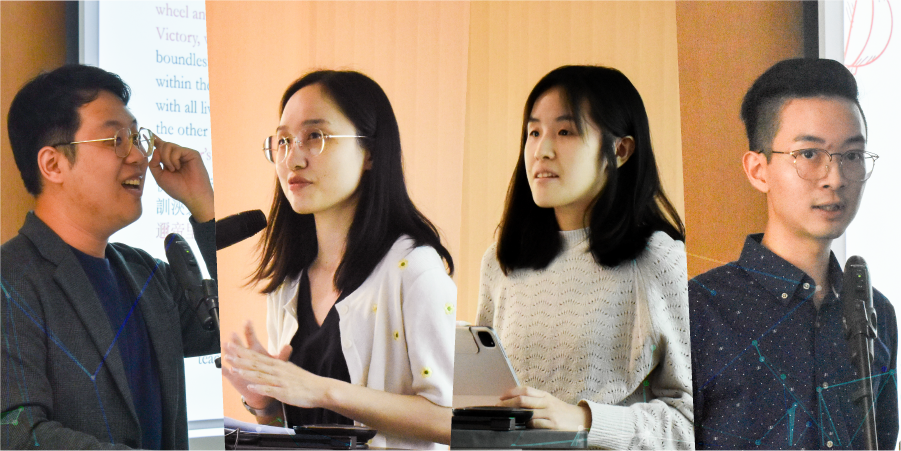
This panel highlighted exciting new work in Chinese Buddhist Studies by current and recently graduated NUS students Tay Yu Xuan, Wang Sisi, Ng Xiang Yun and Tan Guan-Fan, who presented research findings on their respective domains and discussed the NUS Libraries’ resources they have used for their research. The event concluded with a Q&A moderated by A/Prof Jack Chia (Assistant Professor, Department of History).
Botanical Text & Spaces in Singapore
May
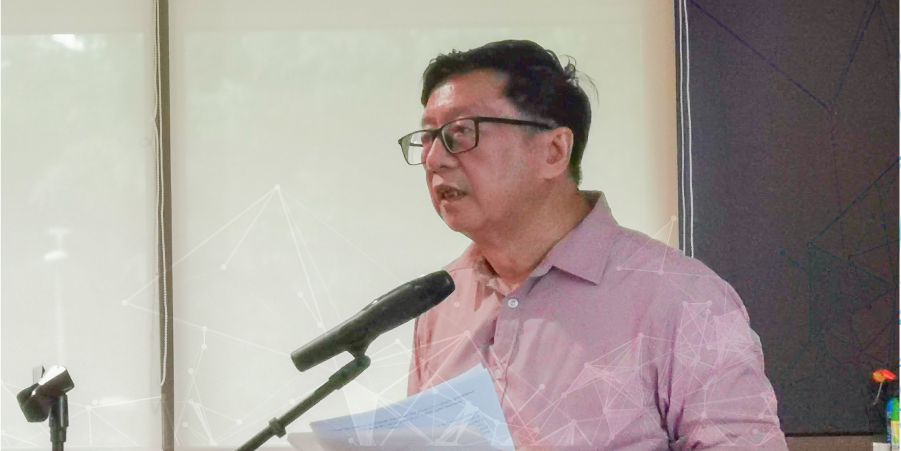
The formation of early botanical landscapes and spaces in Singapore was related to colonial practices on the one hand, and the network of botanical gardens and diasporic labour, on the other. Dr Lai Chee Kien, renowned architectural and urban historian, provided an engaging narrative on the roles and histories of these spaces as related to botanical texts and how they shape our understanding today.
The Importance of Understanding Communities from Their Perspective: Insights from Adventures in Vietnam, Indonesia & Cambodia
July
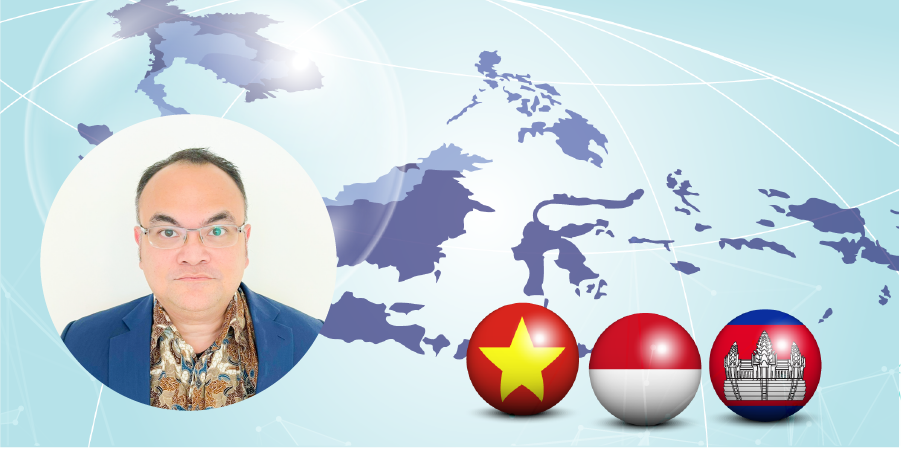
What do conversations with ex-Khmer rouge soldiers and prisoners, royal keris makers of Java and Cham guardians of ancient temples of a long vanished kingdom of Champa have in common? Why is it important to understand developments from local perspectives? What are the strengths and limitations of such an approach? In this talk, Dr Mohamed Effendy B Abdul Hamid (Lecturer, Department of Southeast Asian Studies ) shared his insights (and strange adventures) on doing fieldwork in Southeast Asia and explained the importance of reflexivity and positionality when doing research.
The Story of Bai Yan & Evolution of Gewutuan in Singapore and Malaya
(1930s - 1960s)
August
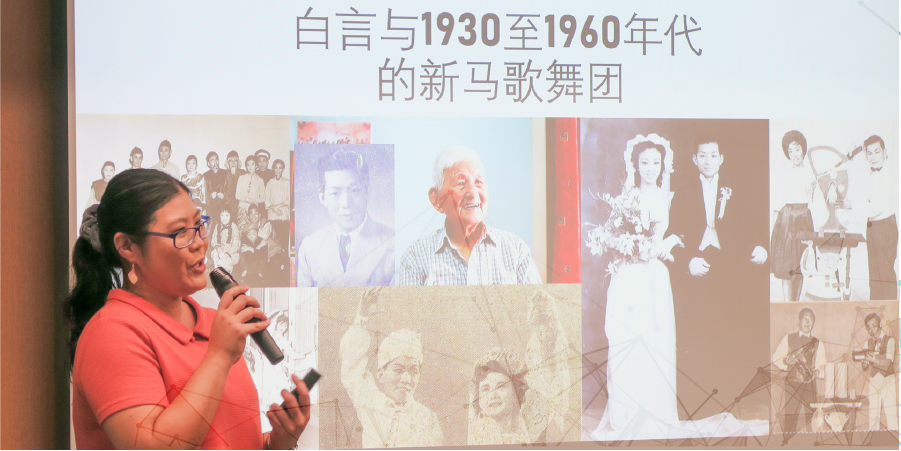
This talk sheds light on the life and career of veteran Singapore actor Bai Yan, touching on his involvement in gewutuan (歌舞团, or traditional song and dance troupe), before joining the television industry in Singapore.
Through our collection of Bai Yan's personal papers, we traced the evolution of gewutuan in Singapore and showed how this vernacular form of Chinese popular culture contributed to the growth of the local arts and entertainment scene in Singapore. Gewutuan was also one of 10 cultural practices shortlisted for Singapore's second nomination for inscription on UNESCO's Intangible Cultural Heritage list in 2022, a testament to its social and cultural significance in Singapore.
"They All Drank": Understanding Singaporean History Through Resources, Tales, and Texts
September
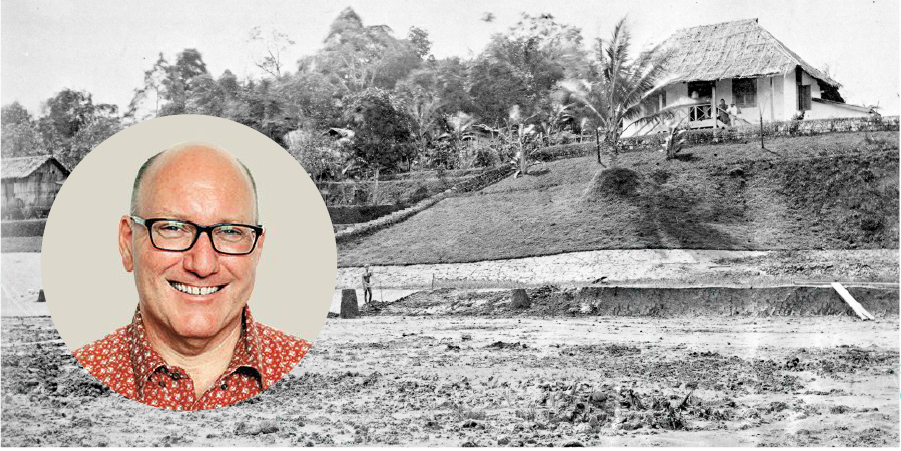
The availability of drinking water was one of the key factors in the establishment of British imperial rule in Singapore in 1819. The early tales, records and accounts of this important element intersect with studies of the environment, modernisation, engineering, economics and immigration on an island in Southeast Asia. Through a discussion of these numerous intersections, A/Prof Timothy P. Barnard (Department of History) discussed how water can influence our perspectives and approaches to Singaporean history.
Notable Achievements
Awards
QS Reimagine Education Awards 2023
Immersive Experiential Learning Award (Bronze)
Exploring the World Beyond: A Paradigm Shift in Education with 360imx VR Field Trips, National University of Singapore (NUS)
View other winners
Publications (Selected)
- Azfar, J., Lim S. C., & Chen, Y. L. (2023). Faculty-librarian collaboration for teaching digital information literacy online: Case study of a large general education course (Special Issue). Asian Journal of the Scholarship of Teaching and Learning, 13(1). Read the full text here
- Ng, T. T. M., Wong , S. N., & Lim, S. C. (2023, September 3). Representing Singapore at the ALA annual conference. Library Association of Singapore. Read about our librarians' experience
- Ng, T. T. M., Wong, S. N., Mak, J. Y., Chen, Y. L., Thongkam, R., & Lim, S. C. (2023, December 6). Librarians shaping the edu-tech landscape: NUS Libraries at Edutech Asia 2023, Asia’s largest conference for educators. Library Association of Singapore. Revisit what was shared
- Kam, M. K. (2023, September 13). 싱가포르국립대학교 도서관 서비스 동향 [National University of Singapore library service trends]. 월드라이브러리[World Library]. Read the article
- National University of Singapore Libraries (2023, October 23). NUS Libraries TEL Imaginarium Escape Room Adventure: Discover Collections through Immersive Learning. The International Federation of Library Associations and Institutions.
Presentations (Selected)
- Ng, T. T. M., Lim, S.C., & Wong, S.N. (2023, June 22-27). Practices to implement and champion a blended learning approach to information literacy at an academic library [Panel presentation]. 2023 American Library Association Annual Conference, Chicago, United States. Visit the event page
- Kader, D. (2023, October 11-13). Decolonising the library and the future of Malay studies collection [Conference presentation]. 9th Rizal Library International Conference (RLIC), Metro Manila, Philippines. Read about event
- Lin, Y. M. (2023, October 17-20). Making the Invisible Visible: Digital Gems@NUS [Conference presentation]. Pacific Rim Research Libraries Alliance 2023 Meeting, Shenzhen, China. Visit event page
- Sim, C. P. (2023, October). The Rare Thread-Bound Ancient Books in the National University of Singapore Libraries [Conference presentation]. 3rd International Academic Forum on the Collection, Research, and Editing and Publishing of Ancient Books and Documents, Guilin, China
- Chen, L., Thongkam, R., Mak J. Y., Ng, T. M. M., & Chow, S. (2023, December 7). Bringing immersive technology closer to education and research in the NUS community [Lightning talk]. Higher Education Campus Conference (HECC), National University of Singapore, Singapore. Read the presentation
- Ng, T. T. M. (2023). Scaffolding success: Enhancing E-resource adoption in courses through Library programs. CAS Indonesia Academic Conference, Singapore.
- Cheng, E. A. (2023). Is there free lunch in library analytics? Harnessing the power of free tools for library analytics and data science. LAS-NLB Professional Sharing Session: Librarian’s Adventure in Data Wonderland, Singapore.
Thank you for reading!

